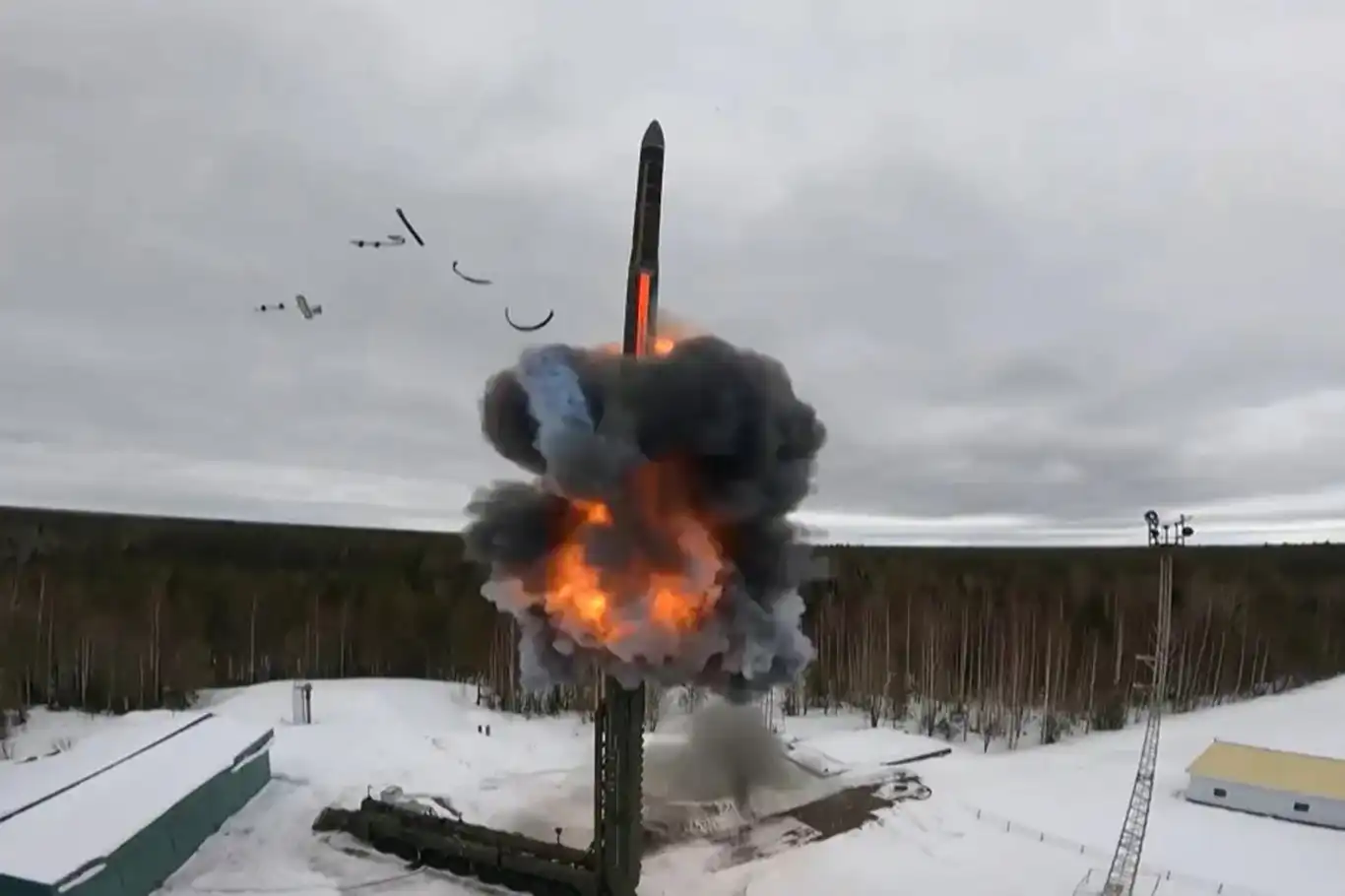Moscow warns of nuclear test retaliation after Trump orders US test resumption


Tensions between Washington and Moscow have deepened after the Kremlin warned it would resume nuclear weapons testing if the United States follows through on former President Donald Trump’s reported order to restart its own nuclear test program.
The statement, made by a senior Kremlin official on Thursday, has reignited global fears of a renewed nuclear arms race reminiscent of the Cold War era — one that could dismantle decades of non-proliferation progress.
“If the United States resumes nuclear testing, we will not remain idle,” said the Russian official, quoted by state news agency RIA Novosti. “Our actions will be symmetrical and proportionate.”
The remarks came just hours after Trump announced that he had ordered the U.S. military to “immediately resume nuclear weapons testing,” citing national security concerns and the need to “maintain the credibility of America’s deterrent.”
While the Biden administration had continued to observe the moratorium on live nuclear testing, Trump’s declaration—if implemented—would mark the first U.S. nuclear test since 1992.
The Kremlin’s warning followed Russian President Vladimir Putin’s own announcement of a successful test of the Poseidon—a nuclear-powered, nuclear-armed underwater drone described by experts as capable of generating a “radioactive tsunami.”
Putin hailed the Poseidon’s test as a “great success,” touting it as a symbol of Russia’s technological superiority. The weapon, launched from a Belgorod-class submarine, is believed to carry a multi-megaton warhead and travel intercontinental distances underwater, capable of devastating coastal cities with radioactive tidal waves.
Independent analysts at the Bulletin of Atomic Scientists warn that the Poseidon could be used to render large swathes of oceanfront territory uninhabitable for decades.
Putin’s announcement came just days after Trump dismissed Moscow’s nuclear missile test as a “mistake,” prompting speculation that the U.S. might be preparing its own show of force.
In addition to the Poseidon test, Putin announced that Russia had successfully tested the Burevestnik—a nuclear-powered, long-range cruise missile capable of flying for extended periods and evading traditional missile defense systems.
The Burevestnik, also known by NATO as the “Skyfall,” is designed to deliver a nuclear payload anywhere on the planet, theoretically circumventing radar and interception systems. Western analysts say such weapons mark a new phase in strategic deterrence, blurring the lines between nuclear and conventional warfare.
Just days earlier, Russia conducted a large-scale nuclear launch drill involving its land-based intercontinental ballistic missiles (ICBMs), submarine-launched missiles, and long-range bombers — a move seen as both a show of force and a readiness exercise.
The escalating rhetoric comes amid the unraveling of key nuclear arms control treaties. The Comprehensive Nuclear-Test-Ban Treaty (CTBT), though signed by both Russia and the United States, has never been ratified by Washington and remains in legal limbo.
Earlier this month, Russia formally revoked its ratification of the CTBT, claiming the move was intended to “mirror” the U.S. position rather than to immediately resume testing. However, the Kremlin’s latest warning suggests Moscow may now be ready to abandon restraint if the U.S. moves first.
Experts warn that renewed nuclear testing by either superpower could trigger a domino effect, prompting China, North Korea, and other nuclear-capable states to follow suit.
“Nuclear testing was one of the most destabilizing practices of the Cold War,” said Dr. Laura Grego, a senior fellow at the Union of Concerned Scientists. “A return to testing would not just set back arms control—it could open the door to an entirely new generation of tactical and strategic nuclear weapons.”
Both Moscow and Washington have been upgrading their nuclear arsenals in recent years. Russia has unveiled several next-generation weapons, including the Avangard hypersonic glide vehicle and the Sarmat ICBM, while the United States is investing billions in modernizing its nuclear triad—comprising land, air, and sea-based delivery systems.
Diplomatic efforts to revive comprehensive arms control negotiations have stalled since the collapse of the Intermediate-Range Nuclear Forces (INF) Treaty in 2019 and the growing strain on the New START agreement, which limits deployed warheads and delivery systems.
Global security experts have described the current exchange between Trump and Putin as “reckless brinkmanship.”
“The mere talk of resuming nuclear testing risks normalizing the unthinkable,” said Hans Kristensen, director of the Nuclear Information Project at the Federation of American Scientists. “Once one side breaks the taboo, the other will follow, and the world could find itself in a far less stable nuclear environment than at any point since the 1960s.”
As both sides trade warnings and demonstrations of power, diplomats fear that the last remaining pillars of nuclear restraint may soon crumble—ushering in a new, more volatile nuclear age. (ILKHA)
LEGAL WARNING: All rights of the published news, photos and videos are reserved by İlke Haber Ajansı Basın Yayın San. Trade A.Ş. Under no circumstances can all or part of the news, photos and videos be used without a written contract or subscription.
As Israel's genocidal assault on Gaza grinds into its third year, leaving over 60,000 Palestinians dead—mostly women and children—and entire cities reduced to rubble, the Israeli occupation army is crumbling from within.
The Islamic Emirate of Afghanistan (IEA) announced Friday that multi-day negotiations with Pakistan, mediated by Türkiye and Qatar, have concluded with both parties agreeing to meet again to address outstanding issues.
The United Nations Relief and Works Agency for Palestine Refugees (UNRWA) has reaffirmed its commitment to providing essential humanitarian services in the Gaza Strip, despite the extremely difficult conditions facing residents.
A senior official from Yemen's Ansarullah movement has powerfully rebuked the Israeli Defense Minister's threats against Yemen, framing them as the desperate bluster of a faltering occupation regime.